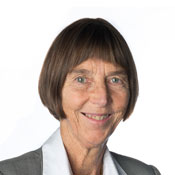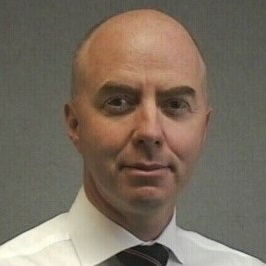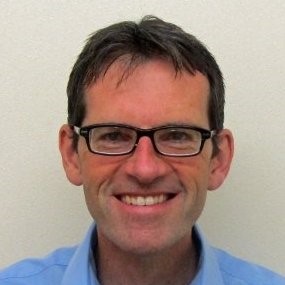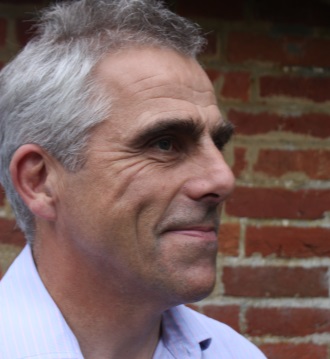Links to external sources may no longer work as intended. The content may not represent the latest thinking in this area or the Society’s current position on the topic.
Transforming UK translation conference

Read the conference report (PDF).
Building on previous work of the Royal Society, this conference will focus on current challenges surrounding translation of research into successful business outcomes and how we can overcome them.
The meeting will consist of a mixture of talks and round table discussions, and bring together key stakeholders across the innovation continuum to discuss some of the key challenges, best practice and ways we can foster stronger industry-academia relationships.
Details about the speakers and discussions will be available closer to the event.
Attending this event
- Please note this conference is free (lunch and refreshments included) but by invitation only. You will require an invitation in order to register. To request an invitation or for more information, please contact the Industry team
- Travel and accessibility information
Schedule
| 09:30 - 09:35 |

Dame Sue Ion GBE FREng FRS

Dame Sue Ion GBE FREng FRSDame Sue Ion GBE FRS FREng is Hon President of the National Skills Academy for Nuclear. She was previously Chairman of the UK Nuclear Innovation Research Advisory Board (NIRAB). She represents the UK on a number of international review and oversight committees for the nuclear sector including the Euratom Science and Technology Committee which she chaired until late 2018. She was the only non-US member of the US Department of Energy’s Nuclear Energy Advisory Committee on which she has served from 2005-2020.She currently serves as a member of the Office of Nuclear Regulation Independent Advisory Panel. Sue spent 27 years with British Nuclear Fuels Ltd (BNFL) rising to the position of Chief Technology Officer in 1992, a post she held until 2006 when she assumed a number of mainly voluntary roles in Science and Engineering, including membership of the UK Council for Science and Technology and the Engineering and Physical Sciences Research Council (EPSRC). She was Vice President of the Royal Academy of Engineering 2002-2008 and chaired its MacRobert Committee 2013-2019. Sue was Deputy Chair of the Board of the University of Manchester until September 2018 and currently serves on the Board of the University of Central Lancashire. Her core expertise is in materials science and engineering associated with the nuclear sector. Sue is a member of the Chief Scientific Advisor for Wales’s Science and Innovation Advisory Council. She has been a Visiting Professor in the Department of Materials at Imperial College since 2006, holds an Honorary Professorship at the University of Manchester and is now Chair of the Royal Society Science, Industry and Translation Committee. |
|---|---|
| 09:35 - 09:45 |

Dr Rupert Lewis, Director of Policy, The Royal Society

Dr Rupert Lewis, Director of Policy, The Royal SocietyRupert is Director of Policy at the Royal Society. Before joining the Society, he led the Government Office for Science (GO-Science) which supports the Government’s Chief Scientific Adviser, providing science advice to the Prime Minister and to the Cabinet, carrying out strategic Foresight projects, and the science of emergency response. His previous roles include head of Automotive policy in the Department of Business, Energy, and Industrial Strategy, where he also led work on business risks and contingency planning and was deputy Chief Scientific Adviser. In Defra he headed Climate Adaptation policy, leading the UK’s first cross-economy climate risk assessment. He also set up the Prime Minister’s ‘Business Council for Britain’. Rupert has a BSc in Marine Biology, a PhD in genetics, and worked on aquaculture development and start-ups in SE Asia, South Africa, and Europe prior to joining Government in 2002. |
| 09:45 - 10:00 |
Impact in an age of disruption
Many industry sectors are facing unprecedented disruption as the pace of innovation increases, digitisation creates new opportunities and business models, environmental concerns bite, new economies emerge, demographics shift, bioscience creates new possibilities and geopolitics becomes increasingly volatile. The need to translate invention into value – i.e. innovation – becomes an existential imperative for many companies. Many of the most valuable innovations occur at the boundaries between traditional disciplines. New ways of working in the start-up ecosystem fuelled by venture capital allows ideas to be demonstrated at pace. These factors mean that companies must be connected to research and experimentation at many levels in an ecosystem approach and must expect to collaborate to succeed in shared ownership models. As industry learns the business building and scale-up lessons from the start-up community this in turns creates new possibilities for partnerships to allow more frictionless translation and business and societal impact from research. 
Dr Stephen Cook, Chief Commercial Officer (Technology), BP plc

Dr Stephen Cook, Chief Commercial Officer (Technology), BP plcSteve Cook completed a DPhil in Bio-organic chemistry at Jesus College, Oxford before joining BP in 1998. He managed various R&D projects before moving into a strategy role which led to the creation of BP’s strategic accounts organisation. Steve then moved into BP’s Renewables business in 2002, managing collaborative demonstration projects in the area of hydrogen refuelling for fuel cell vehicles which included the construction and operation of the UK’s first hydrogen refuelling station in London. During 2005 Steve was part of the launch team for BP’s Alternative Energy Business and following launch led various commercial business development activity within that business. In 2009 Steve moved to BP’s Technology organisation, leading long term strategy development and change management. From 2012 Steve created and led the Technology Commercialisation team which he established to maximise the value of BP’s innovation programmes. This team has commercialised a number of game-changing technologies and spun new companies out of BP. Steve is now Chief Commercial Officer for BP’s Technology organisation. His remit includes long term energy trends work, thought leadership on emerging and disruptive technology, and building new energy businesses using venturing and other commercial structures. Steve is currently leading BP’s new business building factor ‘BP Launchpad’ which is scaling new global energy companies for the future. Steve is a keen rock climber and ceramic artist. He is a founder-trustee of two UK charities. |
|---|---|
| 10:00 - 10:15 |
An SME perspective on research translation
1) How could universities support recent graduates and create more successful technology spin out companies? 2) Does a quasi-venture capital model for university spin out companies provide the best outcomes for the universities, the founders and UK PLC? 3)How can the barriers to SME engagement with universities be minimised? Having founded and spun out two companies from a master’s degree and spent the last 14 years developing, commercialising and licensing technologies within a technology SME, I will provide an SME’s perspective on the above questions with some practical solutions. 
Peter Brewin, Founder, Concrete Canvas Ltd

Peter Brewin, Founder, Concrete Canvas LtdPeter is a director of Concrete Canvas Ltd, which he and Will Crawford founded in 2005 to develop and commercialise the award winning Concrete Canvas material and Concrete Canvas Shelters. Concrete Canvas now has offices on 5 continents, sales partners in 45 countries and projects in 80 countries. Following a Short Service Limited Commission, as an officer in the Royal Engineers, Peter studied Engineering (MEng) at the University of Cambridge and then Industrial Design Engineering (MA) at the Royal College of Art (RCA) and Imperial College where he was funded by an 1851 Studentship. While at the RCA he developed a novel re-circulating shower technology and co-developed Concrete Canvas’s core technologies. Both projects have won multiple major design and business awards, have led to multiple granted patents and have been commercialised as start-up companies. Peter’s work has won a large number of awards; most recently he was awarded a Silver Medal by the Royal Academy of Engineering (RAE) for his outstanding contribution to UK engineering. |
| 10:15 - 10:30 |
Transforming UK translation: a university perspective
Governments and global society at large expect universities to engage with a variety of outside partners in order to translate their research, knowledge and understanding into productive use within those societies and economies. It is well-recognised that the impact that universities can have through such partnerships, and other knowledge exchange activities, is both wide-ranging and profound. To develop productive relationships that support innovation requires a mixture of bottom-up and top-down approaches. The former approach recognises that most partnerships, technology and ideas development, are driven by the individual researchers and their collaborations with external organisations. The latter approach enables integrated, interdisciplinary and cross-institutional outcomes. Innovative partnerships can be forged with companies, hospitals, governments, and a wide variety of organisations, large and small, private and public: in every case the relationship should be one of equivalence, recognising mutual benefit and shared aspiration. 
Dr Celia Caulcott, Vice-Provost (Enterprise), UCL

Dr Celia Caulcott, Vice-Provost (Enterprise), UCLCelia Caulcott is Vice-Provost (Enterprise) at UCL. Following degrees in microbiology she joined the biopharmaceutical industry where she worked on and led research on the production of therapeutic recombinant monoclonal antibodies. Subsequently she worked on a variety of government projects and for the Wellcome Trust on the Human Genome Project. She joined the Biotechnology and Biological Sciences Research Council (BBSRC) in 2008 and moved to UCL in 2015. At BBSRC she developed and led the innovation strategy, widening engagement with agriculture, food and other bioscience-using businesses in the UK, emphasising the importance of bioscience research and innovation in contributing benefit to society and the economy. At UCL, Celia leads the cross-university Innovation and Enterprise Strategy. The focus is on widening the university approach to innovation and enterprise, drawing in all disciplines and seeking the widest possible benefit to society and the economy. This is supported by developing UCL strategic approaches to working with innovation partners, supporting entrepreneurship for students and alumni, translating research outputs to application and developing the UCL culture of innovation and enterprise. |
Chair

Dr David Bembo, Director of Research & Innovation Services, Cardiff University

Dr David Bembo, Director of Research & Innovation Services, Cardiff University
David leads Cardiff University's central Research & Innovation Services department which provides comprehensive research and knowledge exchange support across the institution and oversees a research portfolio with a value in excess of £500M. He is a former chair of the UK Association for University Research and Industry Links (AURIL). Having chaired the merger process which resulted in the creation of PraxisAuril he has now taken up the role as Ambassador for what is recognised as the UK’s leading representative body for knowledge exchange professionals. David is a member of the Government’s Steering Group for the Knowledge Exchange Framework KEF, the editing author of the Guide for Universities on State Aid in R&D and an Expert Reviewer on knowledge exchange and proof of concept studies for the EC’s Horizon 2020 programme.
| 10:35 - 10:50 |
The interpretive labour involved in translation
The following adage is attributed to George Bernard Shaw. “If you and I have an apple each and we exchange them, then we will still have one apple each. But if you and I both have ideas and we exchange them, then each of us will have two ideas.” If the ideas are non-trivial, then idea-exchange must always involve translation. The interpretive labour involved in translation is creative and costly. It follows that some circumstances lead to better translations than others. In this talk, I will give examples of how idea-exchange and translation happens at the Materials Innovation Factory in Liverpool. I will discuss how the building’s open design and culture influences what happens, and also how we could make it even better than it is. I will finish with some suggestions on how best to host and support translational research within UK centres of academic excellence. 
Professor Matt Reed, Strategy Director, Materials Innovation Factory, University of Liverpool

Professor Matt Reed, Strategy Director, Materials Innovation Factory, University of LiverpoolMatt Reed is the Strategy Director of the Materials Innovation Factory at the University of Liverpool. Between 2013 and 2018, he led the Unilever co-investment into this translational facility, in partnership with leading materials chemistry academics at the University of Liverpool, and the UK Government. His focus is on creating and exploiting strategic innovation partnerships with other academic institutes, funding organisations, and commercial innovators. Matt is a scientist, inventor and innovator, with a technical background in chemistry, quantitative microscopy, and data science. He holds an MBa in Technology Management from Chalmers University, Gothenburg. In a thirty-year long career in science and innovation, he has worked for Shell and Unilever, and co-founded three companies. In addition, he has published scientific papers, filed patents, and co-authored three books. He is a Fellow of the Royal Society of Arts, and lives close to Liverpool with his family. |
|---|---|
| 10:50 - 11:20 |
Panel: How do universities interface better with industry and how do you turn initial interactions into something meaningful?

Professor Lisa Roberts, Deputy Vice-Chancellor Research and Innovation, University of Leeds

Professor Lisa Roberts, Deputy Vice-Chancellor Research and Innovation, University of LeedsProfessor Roberts leads on the development of the University’s research and innovation strategy, delivering a step change in the quality, volume and impact of world-leading research carried out at Leeds. Her role includes promoting industry partnerships in a number of key sectors, accelerating interdisciplinary research across a wide range of academic disciplines to tackle grand challenges and driving the recruitment and development of world-leading academics. She has responsibility for the following directorates: corporate relationships, research and innovation development, research quality and impact, commercialisation, major research initiatives, interdisciplinary research, international research and the Doctoral College. Previously she was Executive Dean of the Faculty of Health and Medical Sciences at the University of Surrey, leading the Schools of Bioscience and Medicine, Psychology and Health Sciences. During this time she also developed and launched the 8th School of Veterinary Medicine in the UK and developed a successful One Health Strategy, with external partnerships being key to their success. Lisa is a Professor of Virology and, earlier in her career, she worked as a product development manager for Procter and Gamble, before undertaking her PhD at the BBSRC Institute for Animal Health and the University of Kent. Lisa is also a Board member of the Henry Royce Institute, the UK’s National Institute for Materials Science research and innovation. 
Dr John Patterson

Dr John PattersonJohn joined BNFL plc as a graduate trainee and progressed to the position of Head of Materials, leading a team of some 70 professional scientists and engineers. In this role, he became responsible for University Links and was instrumental in initiating and managing the successful University Research Alliance in Materials Performance at the University of Manchester in 2002. After 27 years’ in the nuclear industry, John joined Alstom as Director of Materials and Chemistry and later assumed responsibility for University Relations worldwide. In 2012 John became the Technical Director at M&I Materials Ltd, a family-owned, medium-sized enterprise. This role included setting policy for relationships with universities as well as initiating and managing such relationships. John is a Chartered Engineer and a Fellow of the Institute of Materials, Minerals and Mining and of the Institute of Physics. 
Kate Barnard, Engineering Manager - University Research, Rolls-Royce Plc

Kate Barnard, Engineering Manager - University Research, Rolls-Royce PlcKate Barnard (Rolls-Royce) is a manager in the engineering and technology group with accountability for maintaining and developing strategic academic partnerships around the world. She interfaces with government agencies, academics, and students to promote collaboration, focus strategic direction in line with corporate and national needs, and ensure a diverse talent pipeline for the future. She has led multiple national and international research programs, having worked for the company for 20 years. She is a chartered engineer with the Institution of Mechanical Engineers and a professional program manager accredited by the Association of Project Management. 
Patrick Speedie, Co-Founder & Director, IN-PART

Patrick Speedie, Co-Founder & Director, IN-PARTPatrick is co-founder and co-CEO of IN-PART, an online match making platform for universities and companies. The system showcases research from over 220 research institutions around the world including MIT, Columbia, Oxford, Cambridge and Max Planck as well as other universities in the EU, Japan, Australia, South America and Hong Kong. To date IN-PART has raised £1.3M in angel and VC investment and brought together a company network in excess of 6,000, including all on the top 25 global R&D spenders. Patrick’s academic background is in law (LLB, LLM) with a professional background in multimedia publishing having worked for a number of years in London as a publisher for Globe Business Media Group. IN-PART currently has offices in Sheffield, London and Ottawa. |
| 11:20 - 13:00 | Workshop |
Chair

Professor Chris Warkup, Innogen Institute, The Open University

Professor Chris Warkup, Innogen Institute, The Open University
Chris Warkup recently retired from the role of CEO of Knowledge Transfer Network Ltd (KTN, the UK’s innovation network). He was the first CEO of a single KTN when 14 KTNs were merged in 2014. Before that he served as the CEO of the Biosciences KTN and its predecessor Faraday Partnership. Chris is a Trustee of the Roslin Foundation and was a founder of the Genomia Seed Fund, which he chaired for ten years. Chris is an animal scientist with an interest in genetics and genomics and is a former President of the British Society of Animal Science. He is a Visiting Professor at the Innogen Institute at The Open University (a joint Institute with the University of Edinburgh).
| 13:50 - 14:05 |
Delivering impact through academic-industry collaborations
Technology driven companies like GSK must continually innovate if they are to be successful in bringing new medicines to the clinic. No single technology driven company, however large, has access to enough internal intellectual capacity to be truly innovative on their own. All companies must collaborate to survive. GSK have more academic collaborations than any other UK headquartered company. This talk will highlight areas of best practice and some of the challenges encountered at the industry-academic interface. Furthermore, the talk will suggest tips and ways to foster stronger collaborations between academia and industry. 
Dr Malcolm Skingle CBE, Director, Academic Liaison, GlaxoSmithKline

Dr Malcolm Skingle CBE, Director, Academic Liaison, GlaxoSmithKlineMalcolm has a BSc in Pharmacology/Biochemistry and PhD in Neuropharmacology and has over 70 publications including articles on the interface between industry and academia. He currently manages GSK’s Academic Liaison, with staff in the US and UK. His role involves close liaison with several groups outside the company including Government Departments, Research and Funding Councils. He sits on many external bodies including BBSRC Council, HEFCE REF Main Panel A and several UK University Department advisory groups. Malcolm chairs several groups including the Diamond (Synchotron) Industrial Advisory Board, the Science Industry Partnership and the ABPI Academic Collaborations, Skills & Education group. |
|---|---|
| 14:05 - 14:35 |
Panel: Value proposition on both sides of the partnership, and clarity on the challenges and potential channels of exploitation

Anne Muir, Head of Business Engagement & Commercialisation, University of Dundee

Anne Muir, Head of Business Engagement & Commercialisation, University of DundeeAnne Muir is Head of Business Engagement and Commercialisation at the University of Dundee leading a team covering IP management, Technology Transfer, Spin-out Formation, Translational funding management, Strategic Industry Partnerships, Consultancy and other Business Engagement. She has over 17 years of experience in the commercialisation sector – primarily drug discovery and pharma – as well as running her own consultancy company working on various pharma/drug development start up programmes. She is an entrepreneur in her own right having founded and taken to market disruptive new products in the performance clothing market, raising both private equity and angel funding. Originally a biochemist, she quickly left the lab for the commercial world. 
Dr Darren Budd, Commercial Director UK & Ireland, BASF Plc

Dr Darren Budd, Commercial Director UK & Ireland, BASF PlcDarren Budd was born in Taplow, United Kingdom, in 1967 and is married with 3 children. He studied Chemistry at Kingston University, UK, and went on to do his doctorate on Transition Metal Complexation of Heterocyclic Conducting Polymers. Darren has held a number of positions within BASF; he worked in Germany for BASF’s Venture Capital Business for 5 years. Then for 6 years until 1st January 2016, Darren was Head of BASF’s in house distribution business for the UK & Ireland looking after sales to BASF’s small and medium sized customers across BASF’s chemicals portfolio. From January 2016, Darren took over as Commercial Director for BASF plc. This role is responsible for the Chemical Sales activities of BASF in the UK as well as the commercial activities of BASF in the UK to develop growth. Currently Darren is Chairman of the Chemical Business Association. He is also on the North West Regional Council of the CBI, a member of the Governing Board of the IBioIC in Glasgow, a Board Member of the British Coatings Federation and the Science and Technology Facilitation Council. Outside of work Darren is Chair of Governors of a local Primary Academy along with being a keen golfer. 
Dr Michael Murray, Principal, Murray International Partners

Dr Michael Murray, Principal, Murray International PartnersDr Murray commercialises intellectual assets. He has led and closed over 50 deals in the biopharmaceuticals industry using scientific, technical, intellectual property (IP), market, and deal-making expertise to assess, build, and negotiate deals. His client base is international and spans universities, start-ups, SMEs, mid-cap companies, and multinationals. Dr Murray has held director- and board-level/senior management and commercial roles in biotech companies and in an international management consultancy practice. He is a Member of the International Technology Transfer Network (ITTN, China); sits on the Advisory Board of the International Chamber of Innovation, Commerce & Enterprise (ICICE, Japan); is a Mentor at Cambridge Enterprise (University of Cambridge, UK); is a Royal Society Entrepreneur-in-Residence at the University of Sheffield (UK); and a Member of the Research Strategy Board of Coeliac UK. He holds a PhD in molecular genetics from the University of Leicester and a first degree in microbiology from the University of Edinburgh. 
Dr Andrea Kells, Director - Research Ecosystem (UK/EU), Arm Ltd

Dr Andrea Kells, Director - Research Ecosystem (UK/EU), Arm LtdAndrea has responsibility for overseeing Arm’s European research partnerships and collaborations, including management and strategic oversight of major UK and EU projects in which Arm is involved. She also liaises with relevant European funding agencies and policy-makers in order to promote Arm’s strategic research objectives, and works with colleagues in the US to support Arm’s international collaborations. Prior to joining Arm, she worked in the University of Cambridge for 10 years, managing large scale industrial collaborations in the biological and physical sciences. She also spent 5 years with a public sector consultancy, leading international evaluations of Government and agency funding for university-industry partnerships. Andrea has a degree in biological sciences from the University of Cambridge, MSc from the University of Oxford, and a PhD from the University of Southampton. |
| 14:35 - 16:15 | Workshop |
Chair

Professor David Knowles FREng, CEO, Henry Royce Institute

Professor David Knowles FREng, CEO, Henry Royce Institute
Professor David Knowles FREng is the CEO of the Henry Royce Institute for Advanced Materials, having taken up the role in February 2019. David is a materials scientist by background and has had a career spanning industry and academia. He has held positions as a lecturer and Chair of Nuclear Engineering at Cambridge and Bristol, been the CTO of an industrial consultancy in New Zealand, managed the Materials and Corrosion research programme at Shell Global Solutions and more recently been a Director and Fellow at Atkins.
| 16:40 - 16:50 |
LifeArc Technology Transfer Fellowship Scheme
In 2019 LifeArc launched a new Technology Transfer Fellowship scheme run in partnership with Imperial College, Queen Mary Innovation and UCL Business (UCLB). The programme has been designed to address a shortfall in the number and in the skills of aspiring technology transfer professionals. This new initiative will support talented young professionals in their development and boost their career in the field of technology transfer by providing training and experience in four of London’s leading technology transfer environments. The Fellows will complete 3-month rotations at each technology transfer office and will receive focused training on distinct topics at each transition. The overarching goal of the scheme is to equip the new generation of aspiring scientists with the necessary skills, business acumen and vision to help translate promising science into new treatments for patients. 
Dr Georgia Gliki, Senior Business Manager, LifeArc

Dr Georgia Gliki, Senior Business Manager, LifeArcGeorgia Gliki has been working at the interface of academic research and drug discovery for over 15 years and has extensive technology assessment, IP management and commercialization experience. She is currently a Senior Business Manager at LifeArc. Prior to joining LifeArc, she held posts at CRT, GSK and CRUK. Georgia completed her PhD in Cardiovascular Medicine at UCL. |
|---|---|
| 16:50 - 17:00 |
Commercial literacy – starting to equip academics for understanding life in start-ups and business
The UK economy is built around three, almost independent, silos: government (including higher education and academia), the transactional economy (such as banks and VCs) and the value-adding economy (including innovative business). Academics who are seeking to move from government funded higher education to business often have to start in the rough and tumble world of start-ups, and are often ill equipped to make the transition. As part of his role as Royal Society Entrepreneur in Residence (EiR) at the University of Southampton, James has set up a Commercial Literacy course to help academics make this transition. The course is set up as a series of eight stand-alone sessions that last an hour, and based on practical experience. Modules includes accounts, how Boards work, business models, what investors want, IP (so much more than patents), lessons from turnarounds and data science for beginners. The course draws upon the skills of other Royal Society EIRs. It has been well received by budding academic entrepreneurs and tech transfer professionals alike and could easily be used by other institutions. 
James Otter, Founder of CommLit.Online, Ellipson, and former Entrepreneur in Residence

James Otter, Founder of CommLit.Online, Ellipson, and former Entrepreneur in ResidenceJames was one of the RS EIRs at the University of Southampton from 2018 to 2021. He was sponsored by the University of Southampton’s Institute for Life Sciences. During this time he mentored a range of start-ups and started the commercial literacy course, which gives academic entrepreneurs a grounding in business issues. Over the last 20 years he has led a range of turnarounds of technology companies in a range of sectors including genomics, drug delivery, health IT, nanotechnology, veterinary MRI and sound and vibration instrumentation. He has chaired or been an NED on Octopus Venture Capital Trusts since 2004. His earlier corporate career was with Zeneca Agrochemicals (now Syngenta) where he held a range of international commercial management positions, and before Zeneca he worked with aid organisations in the field in Nepal and the Sahel. James has a degree in Natural Sciences from Cambridge and an MBA from INSEAD. |
| 17:00 - 17:10 |
Community Building, Fundamental Research and Translation in Synthetic Biology at Bristol
BrisSynBio is one of six BBSRC/EPSRC-funded Synthetic Biology Research Centres established in 2014/15 to nucleate research in synthetic biology across the UK, and to facilitate translating this research. BrisSynBio’s science focuses on fundamental aspects of biomolecular design and engineering and applying these to advance synthetic biology. BrisSynBio created the new post of BrisSynBio Innovation Manager to encourage and oversee the translation of this basic synthetic-biology research into real-life applications in drug discovery, new vaccine platforms, designing novel biomaterials, and biosensor development. To date, this has resulted in four new synthetic biology-based companies, 5 new patent applications, and securing £4.5M of translational funding. In addition, interactions with GSK have led to the award of a Royal Society Entrepreneur in Residence, Dr David Tew, who spends part of his time in Bristol on BrisSynBio’s Innovation Programme. The University has recognised these successes by establishing the Bristol BioDesign Institute. 
Professor Dek Woolfson, Professor of Chemistry and Biochemistry; Principal Investigator of BrisSynbio; Director of the Bristol BioDesign Institute, University of Bristol

Professor Dek Woolfson, Professor of Chemistry and Biochemistry; Principal Investigator of BrisSynbio; Director of the Bristol BioDesign Institute, University of BristolDek Woolfson is Professor of Chemistry and Biochemistry; Principal Investigator of BrisSynBio, a BBSRC/EPSRC-funded Synthetic Biology Research Centre; Director of the Bristol BioDesign Institute at the University of Bristol; and Founder of Rosa Biotech. Dek took his first degree in Chemistry at the University of Oxford, UK in 1987. In 1991, he gained a PhD in Chemistry and Biochemistry at the University of Cambridge. He then did post-doctoral research at University College London (1991 – 92) and the University of California, Berkeley (1992 – 94). He returned to the UK to take up a Lectureship in Biochemistry at the University of Bristol (1994 – 95). From 1996 – 2005 he was Lecturer through to Professor of Biochemistry at the University of Sussex. He moved back Bristol in 2005 to a joint chair in Chemistry and Biochemistry. Dek’s research is at the interface between chemistry and biology, and applies chemical methods and principles to understand biological phenomena such as protein folding and stability. He has a long-standing interest in the challenge of rational protein design, and how this can be applied in synthetic biology and biotechnology. His particular emphasis is on making completely new protein structures not known to natural biology using a combination of rational and computational design. The current focuses of his group are in the parametric design of protein structures, assemblies and materials; and in porting these into living cells to augment natural biology. In 2011 Dek became the first recipient of the Medimmune Protein and Peptide Science Award of the Royal Society of Chemistry; in 2014, he received a Royal Society Wolfson Research Merit Award, and he gained an ERC Advanced Grant; and in 2016 he won the Interdisciplinary Prize of the Royal Society of Chemistry. |
| 17:10 - 17:25 |
Innovation and commercialisation for UK Plc
The strategy for maximising industrial success at the University of Cambridge Department of Computer Science and Technology will be described. Some 270 companies have been formed by graduates and staff of the department mostly in the last 15 years. About half have achieved critical mass and made a sustained and substantive contribution. 
Professor Andrew Hopper CBE FREng FRS, University of Cambridge

Professor Andrew Hopper CBE FREng FRS, University of CambridgeProfessor Andy Hopper is Treasurer and Vice-President of the Royal Society, Chairman of RealVNC Group and former Head of the Department of Computer Science and Technology at Cambridge University. His research interests include computer networking, pervasive and sensor-driven computing, and using computer technology to ensure sustainability of the planet. Andy has pursued academic and industrial careers simultaneously. In the industrial context he has co-founded thirteen spin-outs and start-ups, three of which floated on stock markets, as well as working for multinational companies. In recent years the companies he co-founded have received five Queen's Awards for Enterprise. Andy received the BSc degree from the University College of Swansea (1974) and the PhD degree from the University of Cambridge (1978). He is a Fellow of the Royal Academy of Engineering (1996) and of the Royal Society (2006). He was made a CBE for services to the computer industry (2007). He was President of the Institution of Engineering and Technology (2012). He is a recipient of the Royal Academy of Engineering MacRobert Award (2013) and the Royal Society Bakerian Medal (2017). |
|---|
